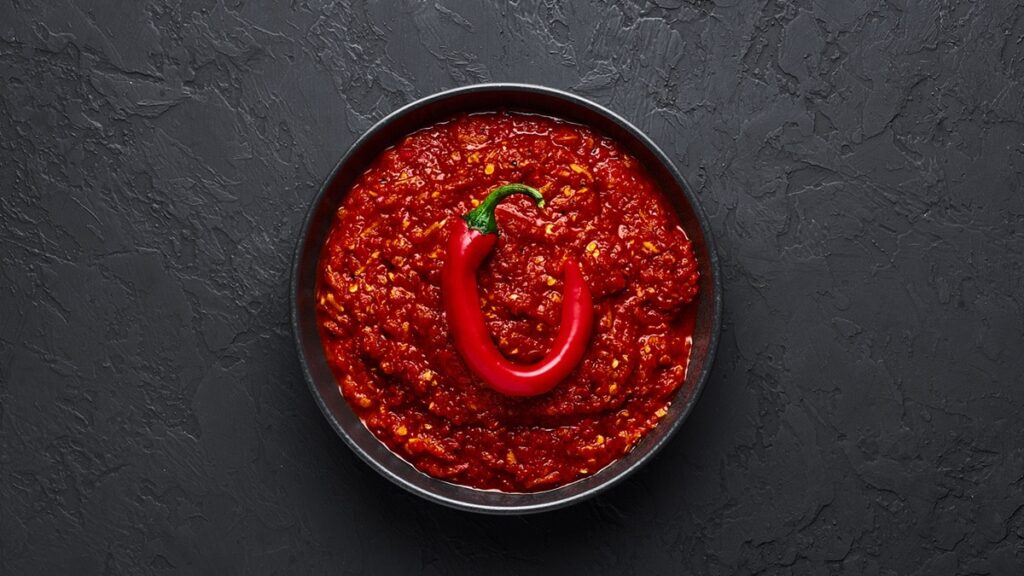What Is The Best Time To Eat Spicy Food? Heres What You Need To Know

Our Indian food scene feels incomplete without a fiery kick. Imagine a bowl of chicken curry with a dash of chilli or the comforting heat of a well-made biryani blended with spices. Spices don’t just enhance flavour; they evoke emotions and nostalgia. From the smoky, peppery tones of Chettinad chicken to the fiery punch of bhut jolokia chutney – our love for spicy food is undeniable. But beyond its taste and thrill, have you ever wondered about the best time to enjoy these hot dishes? Whether you love bold, spicy flavours or just a hint of heat, knowing the right time and state to indulge in can make all the difference. Let’s dive into how spicy food interacts with your body.
Also Read: Love Spicy Food? Try These 7 Spicy Chicken Curries For Flavourful Meal
Photo: iStock
Is Spicy Food Healthy?
Good news for spice lovers: spicy food isn’t just tasty but also packs several health benefits:
1. Boosts Immunity
The United States Department of Agriculture (USDA) highlights that green and red peppers are rich in vitamins like vitamin C, which strengthens the immune system and wards off common illnesses.
2. Aids Weight Loss
Want to rev up your metabolism and burn fat faster? Nutritionist Anshul Jaibharat says spicy food can help, as it enhances satiety and curbs binge eating. So, enjoy your masaledaar meals guilt-free!
3. Reduces Body Pain
Did you know spicy food can reduce pain? Capsaicin decreases neurotransmitters that send pain signals to the brain.
4. Good For Heart
While spicy food can cause heartburn, it also promotes heart health. Capsaicin lowers bad cholesterol, reducing inflammation.
5. Boosts Mood
Ever felt happier after eating spicy food? That’s because it boosts serotonin, the “feel-good” hormone, helping to combat stress and depression.

Photo Credit: iStock
What Is The Best Time To Eat Spicy Food?
Now that we’ve covered its benefits, let’s talk about timing. While you might think you can eat spicy food whenever you want, it actually depends on your body’s state. Ayurvedic health coach Dimple Jangda explains that if you have a Kapha imbalance (e.g., cold, cough, sinus issues, allergies, obesity, or sluggish metabolism), spicy food can be beneficial. Capsaicin increases stomach acid production, raises body temperature, and liquefies mucus, helping alleviate these symptoms.
Who Should Avoid Spicy Food?
You might assume that those without these issues can safely enjoy spicy food, but that’s not always true. If you have acidity, reflux, GERD, a burning sensation, or a Pitta imbalance, Jangda advises avoiding spicy food. The intensity of spices can aggravate these conditions, prolong discomfort, and worsen symptoms.

Can Spicy Food Affect Sleep At Night?
Yes! Spicy food can impact your sleep. Ayurvedic expert Ashutosh Gautam notes that while eating spicy food at dinner isn’t inherently bad, it’s crucial to allow enough time between dinner and bedtime. Why? Spicy food may cause gastric disturbances, indigestion, and restlessness, disrupting your sleep. So, don’t hit the bed right after devouring hot ramen noodles!
Watch the full video below:
Also Read:4 Effective Remedies To Cool Your Mouth After Eating Spicy Food
What’s your favourite spicy food? Let us know in the comments below!








